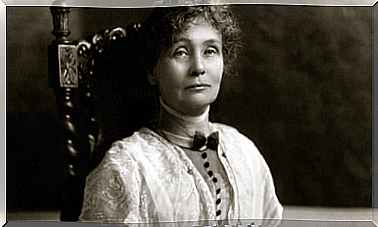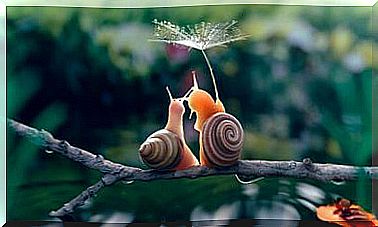Can You Make Your Own Luck In Your Life?

Chance and luck are part of your life from the moment you are born. You do not choose the time, place or family in which you are born. Also not many of the experiences you will have over the course of your life. At first glance, everything in your life seems to be due to chance, but there can be a number of ways you can make your own luck.
Although people use the word ‘happiness’ haphazardly, it is not an easy concept to define. You could say it has to do with random events or circumstances that affect your life positively or negatively. Good luck would be winning the lottery and bad luck would be losing your winning ticket.
Have you ever wondered if happiness is actually as random as it seems? There is no definitive answer, but some researchers have gained some interesting insights into this topic.
We know that luck, with a capital G, just like in the lottery example, is usually determined by chance. However, day to day happiness often depends more on your skills and your intelligence.
Happiness and setback
If you study the biographies of famous historical figures, you will find that most of them have faced major setbacks in their lives. Very few of them would be considered ‘happy’ in the usual sense and their achievements cannot be explained by simple chance.
However, in our everyday life, this rule does not seem to apply. Physicists Alessandro Pluchino and Andrea Rapisarda, along with economist Alessio Biondo, conducted a study of happiness that followed a thousand participants over forty years. Their goal was to determine the economic success of each individual.
The results were staggering. In the end, the most talented or gifted individuals were not the ones in the best financial situation. The factor that seemed to have the most influence was luck. The most talented people achieved a certain level of well-being, but those who achieved real success were the lucky ones.
Luck and Logic
So what does that say about happiness? On the one hand, we have men and women who have made great contributions to society and have faced significant adversity in their lives. On the other hand, we have mildly talented people who achieve great financial success because, according to a study, they were just lucky.
Is there something missing in this equation? Perhaps, says Dr. Cristian Busch, author of the book The Serendipity Mindset: The Art and Science of Creating Good Luck . dr. Busch is also considered one of the 100 most influential thinkers in the world according to The Economist, Diplomatic Courier Magazine, Ideas People and Davos 50 .
Busch argues that the key lies in that enigmatic word he uses in his title: serendipity. He says that these glimmers of happiness are not necessarily the product of chance.
For Busch, it’s all about finding meaning in the unexpected and coincidences. You also have to be willing to take advantage of those moments. Best of all, he thinks this is a skill you can work on and develop. So in theory you could cultivate more happiness in your life.

Opportunities to chase it
dr. Busch also believes that happiness is a matter of perspective. Good luck tends to “leave” you when your desire to be in control takes you off the paths less traveled. In other words, when your fear of the unknown dominates your behavior.
However, the unexpected is not there to cause problems. Instead, it is there to show you truths that you might otherwise have missed. The unexpected often hides the gift of fortune, as long as you are willing to receive it.
Accepting the imperfection of reality, finding answers to your mistakes, and responding with imagination and creativity to unforeseen circumstances are the real building blocks of happiness.
Here the stories of great historical figures and not so talented, but very rich people come together. What they have in common is an excellent ability to deal with the unexpected.
Other people don’t do that well because they want to live in a world of certainties. That’s where their potential stagnates. They cannot see the diamonds that sparkle in the darkness of chaos.









